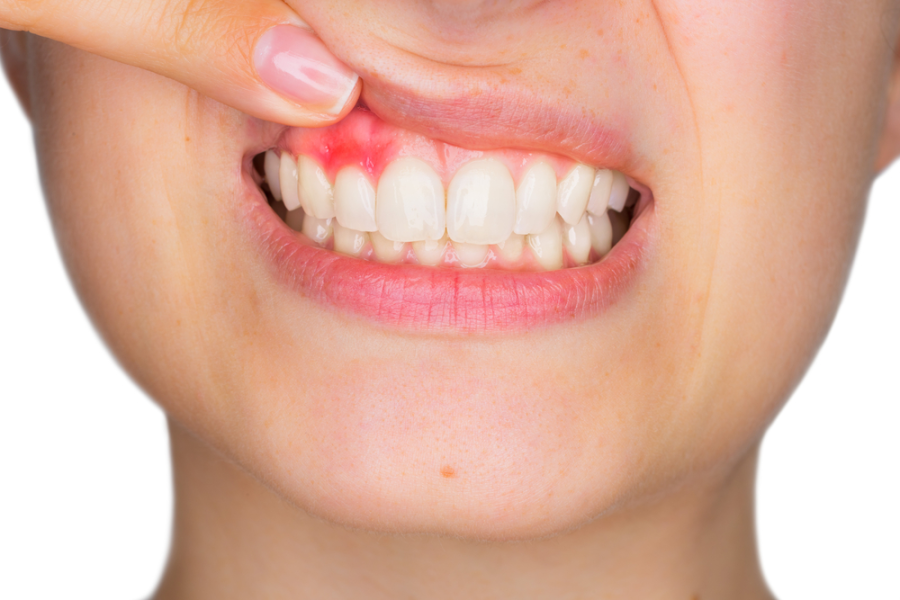When talking about dental health and hygiene, most people think only about avoiding cavities and bad breath. However, other conditions can develop from poor oral hygiene, which damages the gums and can even cause tooth loss.
Bleeding gums are one of the key symptoms of gingivitis, which is a fairly common oral disease. It is important to identify and treat this condition in time, to prevent it from progressing to a next phase called periodontitis.
According to dentist Lourdes Ramírez, the cause of gingivitis is plaque, which she defines as a film of bacteria and proteins that forms at the base of the teeth and encourages the appearance of cavities. She explains that if plaque is not removed when it has a soft consistency, it will begin to harden to the point that it can only be removed with the help of a professional and that it has already caused some consequences.
Professionals from the Medline Plus site, developed by the National Library of Medicine of the United States, point out that if plaque is not removed, it becomes a hard deposit called tartar (or calculus) that remains trapped at the base of the tooth, causing irritation and inflammation in the gums that in the short term produce gingivitis.
They also mention that uncontrolled diabetes, the use of some contraceptive pills, and misaligned teeth can also cause it. For his part, doctor Marco Antonio Morales also comments that diseases that reduce immunity such as leukemia and HIV/AIDS, smoking, being very old, and genetics can also cause it.
Symptoms:
Healthy gums are firm, well supported around the teeth, and have a pale pink appearance. Therefore, according to experts at the Mayo Clinic, if they have any of the following characteristics, it is very likely that you have gingivitis:
- Sensitive gums
- Inflamed or swollen gums
- Dark red or purple gums
- Gums that bleed easily when you brush or floss your teeth
- Bad breath
- Receding gums
- Separation of the gums, which makes the teeth look longer
- You often have a bad taste in your mouth
As for complications, they say that untreated gingivitis can turn into gum disease and spread to the underlying tissue and bone (periodontitis), a much more serious disease that can lead to tooth loss, so it is important to treat it in time.
Once gingivitis is diagnosed by a dental health professional, he or she will proceed to remove plaque. He or she will likely recommend that you use a special toothpaste or mouthwash that is specifically designed to care for your gums. Bleeding of your gums will decrease within a week or two after cleaning. You will also notice a change in color (from red or purple to pink) and inflammation will decrease. From there, you should implement improvements in your dental cleaning routine and work to prevent the disease from developing again.
How to prevent periodontal diseases?
Ramírez shares the following recommendations:
- Brush your teeth after every meal to remove plaque from the surface of your teeth.
- Floss daily to remove plaque that your toothbrush can’t reach.
- Use mouthwash twice a day after brushing.
- Make regular visits to the dentist for necessary professional cleanings.

